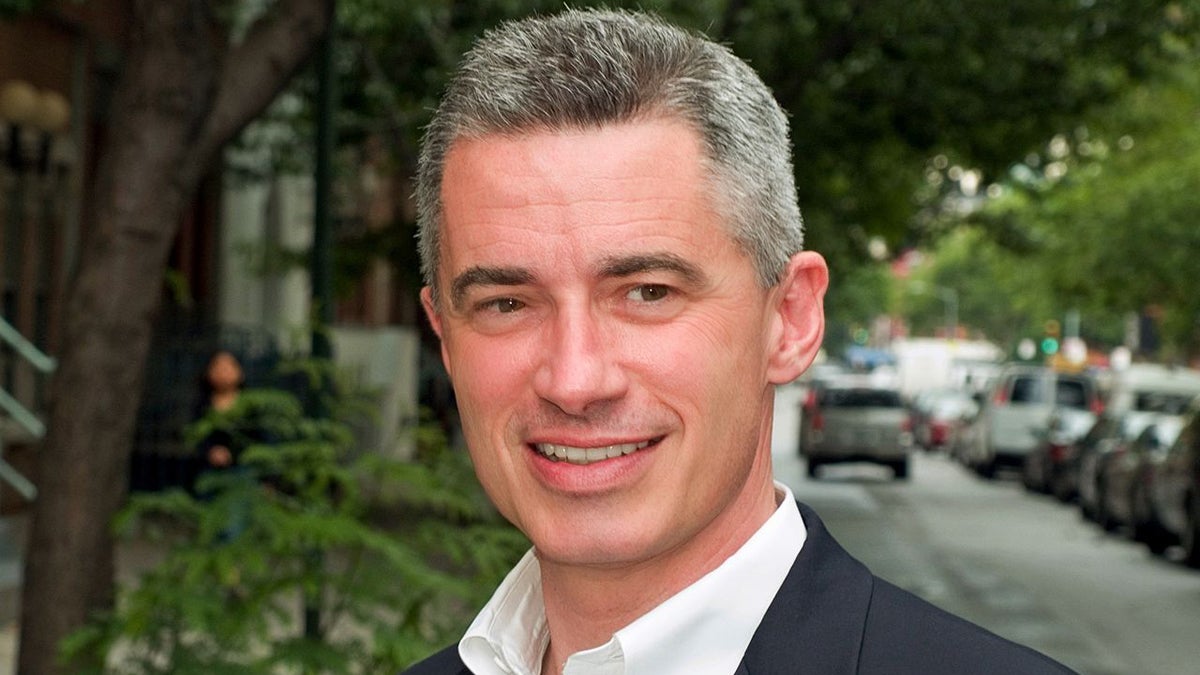A decade after dramatic declaration, McGreevey talks of quiet life as ‘gay American’
Listen 7:30
Former N.J. Gov. Jim McGreevey is shown in 2009. (Image courtesy of David Shankbone)
It’s been 10 years since New Jersey Gov. Jim McGreevey announced his resignation and proclaimed to the world, “I am a gay American.”
A lot has change for him and gay rights in the decade since Aug. 12, 2004.
McGreevey left office that fall, having been pressured to come out of the closet by Golan Cipel, a man he put on the state payroll while they were having an affair. That summer Cipel was threatening a sexual harassment lawsuit against McGreevey that would have outed the veteran politician.
McGreevey, 57, recently met with WHYY to discuss how much has changed for him and for gay rights since his moment in the national spotlight.
If he were beginning a political career today, he said he absolutely would feel comfortable running as an openly gay candidate. But up until he made the decision to resign, he had never seriously thought of coming out.
He decided to keep his sexual orientation secret very early on.
“For me it was a decision that I made, you know, 5, 6 years of age in Boy Scouts, in third or fourth grade. And which was only reconfirmed as I went through high school. Because being gay was seen as being less than masculine. Being less than. And then it was only fortified in the then-political culture,” he said. “So it wasn’t necessarily a decision that I re-examined during the course of my life.”
In January of 2004, McGreevey signed into law the New Jersey Domestic Partnership Act, granting some legal rights to same-sex couples. It was very tough to get that bill through the Legislature, even when his own party controlled the General Assembly and half the Senate. This was months before the courts would legalize same-sex marriage in Massachusetts, and McGreevey said that he didn’t think he would see gay and lesbian couples marrying “in my lifetime.”
A foiled plot to out him
Despite two marriages, throughout his political career, there were rumors that McGreevey was gay. When asked if anyone had tried to out him or threaten to do so for political gain, he recounted this story from the first time he ran for governor in 1997.
It was a heated race with incumbent Gov. Christie Whitman holding on to a slim lead. While he didn’t know it at the time, McGreevey said he later found out that some Republicans considered outing him in that 1997 race.
“And, much to her credit, Gov. Whitman said, ‘That’s his personal business, I’m having nothing to do with it, and it’s not happening on my campaign,'” McGreevey said.
A senior official from Whitman’s staff confirmed that there were discussions about whether they should out the Democrat and that Whitman forbade it. McGreevey said, given how cutthroat campaigns have become, it’s striking that Whitman chose not to use this to her advantage. It “bespeaks of a different time and a civility that I think has somewhat been lost in the American political give-and-take,” he said.
The ‘gritty’ work of helping former prisoners
Since leaving office, McGreevey graduated from the General Theological Seminary in New York, but has yet to go on to be ordained an Episcopal priest as he had planned. While studying at the seminary, he began volunteer work with former prisoners trying to reintegrate into society. He’s continuing that work now as executive director of the Jersey City Employment & Training Program.
Doing this work on the local level has proved to him how statewide initiatives, whether his own or from governors Corzine and Christie, are mere “window dressing,” he said.
When done right, he said, “It’s really gritty work. I mean, literally, picking somebody up from jail, putting them into transitional housing, testing their urine, making sure that they follow up on their training, their employment. And then making sure that they also comply with intensive outpatient or their addiction recovery.”
“There’s a predilection in American government to do the expensive easy thing, as opposed to the far less expensive, but far more labor-intensive process of reintegrating,” he said.
McGreevey is very guarded about his private life. He said he does get to see his two daughters often. Since 2005, he and executive Mark O’Donnell have been a couple, though when asked if the two would marry now that same-sex marriage is legal in New Jersey, McGreevey would not answer.
WHYY is your source for fact-based, in-depth journalism and information. As a nonprofit organization, we rely on financial support from readers like you. Please give today.




